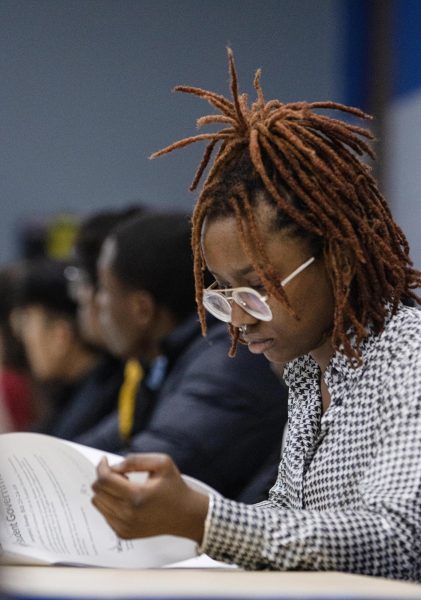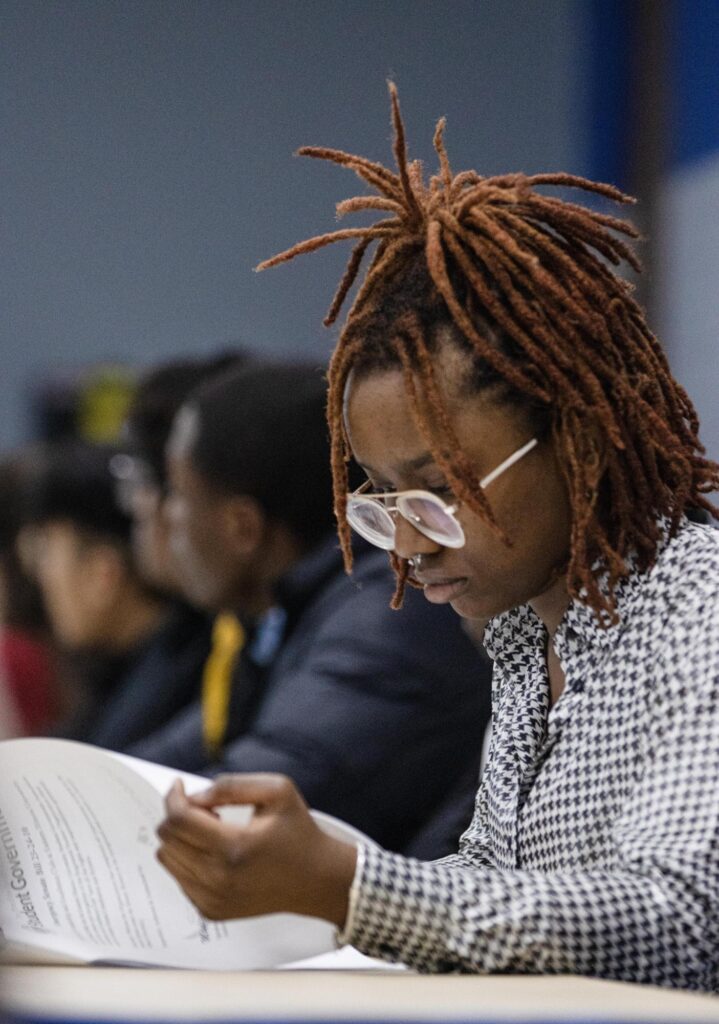
A revised version of the student government regulations was submitted at the student senate general meeting on March 6th, which included the reassignment of tasks and the abolition of the judicial branch.
Student Body President Nidhi Patel and Senate President Madison Veitch, who co-leads the Constitutional Reform Task Force, gave a presentation outlining all the changes that were made.
The Student Senate did not vote on the Constitution during the meeting, as the revised Constitution will be added to the Spring 2024 ballot and incorporated during the Fall 2024 semester.
The revised constitution introduced a new student government role: student trustee.
The Student Director is the student representative on the Board of Directors, a responsibility previously held by Executive Vice President August Biernbaum, a senior political science major. Student Trustees attend Board meetings and participate in discussions and votes on matters affecting the University.
Significant changes to the constitution include the removal of the judicial branch, which has not been active since the last time the student constitution was revised. The duties of the judicial branch were primarily delegated to various student government officers and faculty.
An example of this is that the evaluation of student government executive officers is now delegated to Ceci Brinker, the student government advisor. Additionally, if a student government officer is removed from his or her position, he or she will appeal to the university's vice president for student affairs.
The student council president's responsibilities were primarily held in workshops. The authority and responsibility of the student council president has been reduced.
The previous constitution provided that the student body president could veto any measure passed by the student senate, with the only exception being parliamentary procedures. The revised constitution would further limit the RSO's powers by denying it the right to veto its charter or resolutions.
The responsibilities that have been completely removed from the Constitution are meetings with judicial branch officials, vetting of the Senate president prior to the speaker election process, and biweekly meetings with other executive branch officials.
The revised constitution greatly restricted the duties of the student council president, but gave new responsibilities to the vice president. The proposed constitution provides that the executive vice president also serves as chairman of the appropriations committee and maintains records in accordance with both the committee's bylaws and public law. The Executive Vice President will also consult with executive and legislative leaders and assist in developing the next fiscal year's line-item budget.
They are expected to update the Student Senate each semester on the Board's budget, which is funded by the Student Activities Fee, and regularly update the budget for each of these programs under the Revised Constitution. It will be reviewed and audited.
In addition, the new constitution requires that the Executive Vice President review student government expenditures before they are submitted to the Student Senate. The final new proposed duty of the Student Executive Vice President is to serve on the Senate Tuition Committee.
The financial responsibilities of the Vice President for Student Affairs were significantly reduced by the revised Constitution, as many of the previous responsibilities were reassigned to the Executive Vice President. They maintain a role in working with the Executive Vice President to approve funding for registered student organizations.
The revised constitution states that the vice president for student affairs will head the Diversity Action Council and head Diversity, Equity and Inclusion Week.
The revised constitution is scheduled to be voted on in early April.
Veronica Gipson can be reached at 581-2812 or [email protected].


